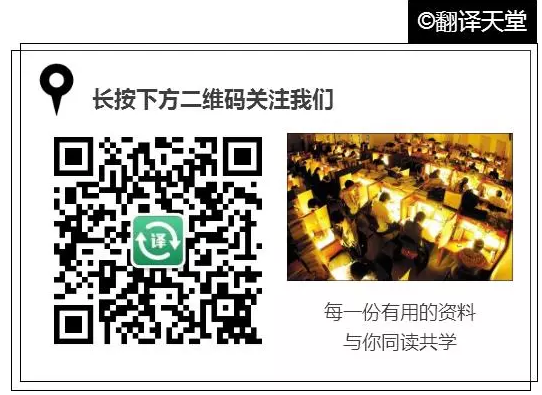Double Seventh Festival (七夕)
The Double Seventh Festival, on the 7th day of the 7th lunar month, is a traditional festival full of romance. It often goes into August in the Gregorian calendar.
This festival is in mid-summer when the weather is warm and the grass and trees reveal their luxurious greens. At night when the sky is dotted with stars, and people can see the Milky Way spanning from the north to the south. On each bank of it is a bright star, which see each other from afar. They are the Cowherd and Weaver Maid, and about them there is a beautiful love story passed down from generation to generation.
Long, long ago, there was an honest and kind-hearted fellow named Niu Lang (Cowhand). His parents died when he was a child. Later he was driven out of his home by his sister-in-law. So he lived by himself herding cattle and farming. One day, a fairy from heaven Zhi Nu (Weaver Maid) fell in love with him and came down secretly to earth and married him. The cowhand farmed in the field and the Weaver Maid wove at home. They lived a happy life and gave birth to a boy and a girl. Unfortunately, the God of Heaven soon found out the fact and ordered the Queen Mother of the Western Heavens to bring the Weaver Maid back.
With the help of celestial cattle, the Cowhand flew to heaven with his son and daughter. At the time when he was about to catch up with his wife, the Queen Mother took off one of her gold hairpins and made a stroke. One billowy river appeared in front of the Cowhand. The Cowhand and Weaver Maid were separated on the two banks forever and could only feel their tears. Their loyalty to love touched magpies, so tens of thousands of magpies came to build a bridge for the Cowhand and Weaver Maid to meet each other. The Queen Mother was eventually moved and allowed them to meet each year on the 7th of the 7th lunar month. Hence their meeting date has been called "Qi Xi" (Double Seventh).
Scholars have shown the Double Seventh Festival originated from the Han Dynasty (206 BC-AD220). Historical documents from the Eastern Jin Dynasty (AD371-420) mention the festival, while records from the Tang Dynasty (618-907) depict the grand evening banquet of Emperor Taizong and his concubines. By the Song (960-1279) and Yuan (1279-1368) dynasties, special articles for the "Qi Xi" were seen being sold on markets in the capital. The bustling markets demonstrated the significance of the festival.
Today some traditional customs are still observed in rural areas of China, but have been weakened or diluted in urban cities. However, the legend of the Cowhand and Weaver Maid has taken root in the hearts of the people. In recent years, in particular, urban youths have celebrated it as Valentine's Day in China. As a result, owners of flower shops, bars and stores are full of joy as they sell more commodities for love.
在我国,农历七月初七的夜晚,天气温暖,草木飘香,这就是人们俗称的七夕节,也有人称之为“乞巧节”或“女儿节”,这是中国传统节日中最具浪漫色彩的一个节日,也是过去姑娘们最为重视的日子。
在晴朗的夏秋之夜,天上繁星闪耀,一道白茫茫的银河横贯南北,争河的东西两岸,各有一颗闪亮的星星,隔河相望,遥遥相对,那就是牵牛星和织女星。
相传在很早以前,南阳城西牛家庄里有个聪明.忠厚的小伙子,父母早亡,只好跟着哥哥嫂子度日,嫂子马氏为人狠毒,经常虐待他,逼他干很多的活,一天,天上的织女和诸仙女一起下凡游戏,在河里洗澡,牛郎在老牛的帮助下认识了织女,二人互生情意,后来织女便偷偷下凡,来到人间,做了牛郎的妻子。男耕女织,情深意重,他们生了一男一女两个孩子,一家人生活得很幸福。但是好景不长,这事很快便让天帝知道,王母娘娘亲自下凡来,强行把织女带回天上,恩爱夫妻被拆散。
牛郎上天无路,还是老牛告诉牛郎,在它死后,可以用它的皮做成鞋,穿着就可以上天。牛郎按照老牛的话做了,穿上牛皮做的鞋,拉着自己的儿女,一起腾云驾雾上天去追织女,眼见就要追到了,岂知王母娘娘拔下头上的金簪一挥,一道波涛汹涌的天河就出现了,牛郎和织女被隔在两岸,只能相对哭泣流泪。他们的忠贞爱情感动了喜鹊,千万只喜鹊飞来,搭成鹊桥,让牛郎织女走上鹊桥相会,王母娘娘对此也无奈,只好允许两人在每年七月七日于鹊桥相会。
七夕乞巧,这个节日起源于汉代,东晋葛洪的《西京杂记》有“汉彩女常以七月七日穿七孔针于开襟楼,人俱习之”的记载,这便是我们于古代文献中所见到的最早的关于乞巧的记载。后来的唐宋诗词中,妇女乞巧也被屡屡提及,唐朝王建有诗说“阑珊星斗缀珠光,七夕宫娥乞巧忙”。据《开元天宝遗事》载:唐太宗与妃子每逢七夕在清宫夜宴,宫女们各自乞巧,这一习俗在民间也经久不衰,代代延续。
直到今日,七夕仍是一个富有浪漫色彩传统节日。但不少习俗活动已弱化或消失,惟有象征忠贞爱情的牛郎织女的传说,一直流传民间。
Mid-Autumn Festival(中秋节)
The Mid-Autumn Festival falls on the 15th day of the 8th lunar month, usually in October in Gregorian calendar.
The festival has a long history. In ancient China, emperors followed the rite of offering sacrifices to the sun in spring and to the moon in autumn. Historical books of the Zhou Dynasty had had the word "Mid-Autumn". Later aristocrats and literary figures helped expand the ceremony to common people. They enjoyed the full, bright moon on that day, worshipped it and expressed their thoughts and feelings under it. By the Tang Dynasty (618-907), the Mid-Autumn Festival had been fixed, which became even grander in the Song Dynasty (960-1279). In the Ming (1368-1644) and Qing (1644-1911) dynasties, it grew to be a major festival of China.
Folklore about the origin of the festival go like this: In remote antiquity, there were ten suns rising in the sky, which scorched all crops and drove people into dire poverty. A hero named Hou Yi was much worried about this, he ascended to the top of the Kunlun Mountain and, directing his superhuman strength to full extent, drew his extraordinary bow and shot down the nine superfluous suns one after another. He also ordered the last sun to rise and set according to time. For this reason, he was respected and loved by the people and lots of people of ideals and integrity came to him to learn martial arts from him. A person named Peng Meng lurked in them.
Hou Yi had a beautiful and kindhearted wife named Chang E. One day on his way to the Kunlun Mountain to call on friends, he ran upon the Empress of Heaven Wangmu who was passing by. Empress Wangmu presented to him a parcel of elixir, by taking which, it was said, one would ascend immediately to heaven and become a celestial being. Hou Yi, however, hated to part with his wife. So he gave the elixir to Chang E to treasure for the time being. Chang E hid the parcel in a treasure box at her dressing table when, unexpectedly, it was seen by Peng Meng.
One day when Hou Yi led his disciples to go hunting, Peng Meng, sword in hand, rushed into the inner chamber and forced Chang E to hand over the elixir. Aware that she was unable to defeat Peng Meng, Chang E made a prompt decision at that critical moment. She turned round to open her treasure box, took up the elixir and swallowed it in one gulp. As soon as she swallowed the elixir her body floated off the ground, dashed out of the window and flew towards heaven. Peng Meng escaped.
When Hou Yi returned home at dark, he knew from the maidservants what had happened. Overcome with grief, Hou Yi looked up into the night sky and called out the name of his beloved wife when, to his surprise, he found that the moon was especially clear and bight and on it there was a swaying shadow that was exactly like his wife. He tried his best to chase after the moon. But as he ran, the moon retreated; as he withdrew, the moon came back. He could not get to the moon at all.
Thinking of his wife day and night, Hou Yi then had an incense table arranged in the back garden that Chang E loved. Putting on the table sweetmeats and fresh fruits Chang E enjoyed most, Hou Yi held at a distance a memorial ceremony for Chang E who was sentimentally attached to him in the palace of the moon.
When people heard of the story that Chang E had turned into a celestial being, they arranged the incense table in the moonlight one after another and prayed kindhearted Chang E for good fortune and peace. From then on the custom of worshiping the moon spread among the people.
People in different places follow various customs, but all show their love and longing for a better life. Today people will enjoy the full moon and eat moon cakes on that day.
The moon looks extremely round, big and bright on the 15th day of each lunar month. People selected the August 15 to celebrate because it is a season when crops and fruits are all ripe and weather pleasant. On the Mid-Autumn Festival, all family members or friends meet outside, putting food on tables and looking up at the sky while talking about life. How splendid a moment it is!
每年农历八月十五日,是传统的中秋佳节。这时是一年秋季的中期,所以被称为中秋。
中秋节有悠久的历史,和其它传统节日一样,也是慢慢发展形成的,古代帝王有春天祭日,秋天祭月的礼制,早在《周礼》一书中,已有“中秋”一词的记载。后来贵族和文人学士也仿效起来,在中秋时节,对着天上又亮又圆一轮皓月,观赏祭拜,寄托情怀,这种习俗就这样传到民间,形成一个传统的活动,一直到了唐代,这种祭月的风俗更为人们重视,中秋节才成为固定的节日,《唐书·太宗记》记载有“八月十五中秋节”,这个节日盛行于宋朝,至明清时,已与元旦齐名,成为我国的主要节日之一。
相传,远古时候天上有十日同时出现,晒得庄稼枯死,民不聊生,一个名叫后羿的英雄,力大无穷,他同情受苦的百姓,登上昆仑山顶,运足神力,拉开神弓,一气射下九个多太阳,并严令最后一个太阳按时起落,为民造福。后羿因此受到百姓的尊敬和爱戴,不少志士慕名前来投师学艺,心术不正的蓬蒙也混了进来。
后羿有一个美丽的妻子叫“嫦娥”。一天,后羿到昆仑山访友求道,巧遇由此经过的王母娘娘,便向王母求得一包不死药。据说,服下此药,能即刻升天成仙。然而,后羿舍不得撇下妻子,只好暂时把不死药交给嫦娥珍藏。嫦娥将药藏进梳妆台的百宝匣里,不料被小人蓬蒙看见了。
一天,率众徒外出狩猎,蓬蒙手持宝剑闯入内宅后院,威逼嫦娥交出不死药。嫦娥知道自己不是蓬蒙的对手,危急之时她当机立断,转身打开百宝匣,拿出不死药一口吞了下去。嫦娥吞下药,身子立时飘离地面、冲出窗口,向天上飞去。蓬蒙便借机逃走了。
傍晚,后羿回到家,侍女们哭诉了白天发生的事。后羿气得捶胸顿足,悲痛欲绝,仰望着夜空呼唤爱妻的名字,这时他惊奇地发现,今天的月亮格外皎洁明亮,而且有个晃动的身影酷似嫦娥。他拼命朝月亮追去,可是他追三步,月亮退三步,他退三步,月亮进三步,无论怎样也追不到跟前。
后羿无可奈何,又思念妻子,只好派人到嫦娥喜爱的后花园里,摆上香案,放上她平时最爱吃的蜜食鲜果,遥祭在月宫里眷恋着自己的嫦娥。百姓们闻知嫦娥奔月成仙的消息后,纷纷在月下摆设香案,向善良的嫦娥祈求吉祥平安。
中秋节的习俗很多,形式也各不相同,但都寄托着人们对生活无限的热爱和对美好生活的向往。
在今天,中秋节的时候,人们都会吃月饼。月下游玩的习俗,已远没有旧时盛行。但设宴赏月仍很盛行,人们把酒问月,庆贺美好的生活,或祝远方的亲人健康快乐,和家人“千里共婵娟”。
Double Ninth Festival(重阳节)
The 9th day of the 9th lunar month is the traditional Chongyang Festival, or Double Ninth Festival. It usually falls in October in the Gregorian calendar. In an ancient and mysterious book Yi Jing, or The Book of Changes, number "6" was thought to be of Yin character, meaning feminine or negative, while number "9" was thought to be Yang, meaning masculine or positive. So the number nine in both month and day create the Double Ninth Festival, or Chongyang Festival. Chong in Chinese means "double." Also, as double ninth was pronounced the same as the word to signify "forever", both are "Jiu Jiu," the Chinese ancestors considered it an auspicious day worth celebration. That's why ancient Chinese began to celebrate this festival long time ago.
The custom of ascending a height to avoid epidemics was passed down from long time ago. Therefore, the Double Ninth Festival is also called "Height Ascending Festival". The height people will reach is usually a mountain or a tower. Ancient literary figures have left many poems depicting the activity. Even today, people still swarm to famous or little known mountains on this day.
On this day, people will eat Double Ninth Gao (or Cake). In Chinese, gao (cake) has the same pronunciation with gao (height). People do so just to hope progress in everything they are engaged in. There is no fixed ways for the Double Ninth Cake, but super cakes will have as many as nine layers, looking like a tower.
The Double Ninth Festival is also a time when chrysanthemum blooms. China boasts diversified species of chrysanthemum and people have loved them since ancient times. So enjoying the flourishing chrysanthemum also becomes a key activity on this festival. Also, people will drink chrysanthemum wine. Women used to stick such a flower into their hair or hang its branches on windows or doors to avoid evilness.
In 1989, the Chinese government decided the Double Ninth Festival as Seniors' Day. Since then, all government units, organizations and streets communities will organize an autumn trip each year for those who have retired from their posts. At the waterside or on the mountains, the seniors will find themselves merged into nature. Younger generations will bring elder ones to suburban areas or send gifts to them on this day.
农历九月九日,为传统的重阳节。因为古老的《易经》中把“六”定为阴数,把“九”定为阳数,九月九日,日月并阳,两九相重,故而叫重阳,也叫重九,古人认为是个值得庆贺的吉利日子,并且从很早就开始过此节日。
在古代,民间在重阳有登高的风俗,故重阳节又叫“登高节”。相传此风俗始于东汉。唐代文人所写的登高诗很多,大多是写重阳节的习俗;杜甫的七律《登高》,就是写重阳登高的名篇。登高所到之处,没有划一的规定,一般是登高山、登高塔。
在这一天,人们还有吃“重阳糕”的习俗。在汉语里,“糕”与“高”同音,”,人们会用“吃糕”代替“登高”,祝愿百事俱高。重阳糕又称花糕、菊糕、五色糕,制无定法,较为随意。最高的有九层,像一个塔。
重阳节正是一年的金秋时节,菊花盛开,民间还把农历九月称为“菊月”,在菊花傲霜怒放的重阳节里,观赏菊花成了节日的一项重要内容,当然,人们也会喝一些菊花酒。女人会把茱萸插在头上或挂在门口,可以避难消灾。
今天的重阳节,被赋予了新的含义,在1989年,我国把每年的九月九日定为老人节,传统与现代巧妙地结合,成为尊老、敬老、爱老、助老的老年人的节日。全国各机关、团体、街道,往往都在此时组织从工作岗位上退下来的老人们秋游赏景,或临水玩乐,或登山健体,让身心都沐浴在大自然的怀抱里;不少家庭的晚辈也会搀扶着年老的长辈到郊外活动或为老人准备一些可口的饮食。
Winter Solstice (冬至)
As early as 2,500 years ago, about the Spring and Autumn Period (770-476 BC), China had determined the point of Winter Solstice by observing movements of the sun with a sundial. It is the earliest of the 24 seasonal division points. The time will be each December 22 or 23 according to the Gregorian calendar.
The Northern hemisphere on this day experiences the shortest daytime and longest nighttime. After the Winter Solstice, days will become longer and longer. As ancient Chinese thought, the yang, or muscular, positive things will become stronger and stronger after this day, so it should be celebrated.
The Winter Solstice became a festival during the Han Dynasty (206 BC-220 AD) and thrived in the Tang and Song dynasties (618-1279). The Han people regarded Winter Solstice as a "Winter Festival", so officials would organize celebrating activities. On this day, both officials and common people would have a rest. The army was stationed in, frontier fortresses closed and business and traveling stopped. Relatives and friends presented to each other delicious food. In the Tang and Song dynasties, the Winter Solstice was a day to offer scarifies to Heaven and ancestors. Emperors would go to suburbs to worship the Heaven; while common people offered sacrifices to their deceased parents or other relatives. The Qing Dynasty (1644-1911) even had the record that "Winter Solstice is as formal as the Spring Festival," showing the great importance attached to this day.
In some parts of Northern China, people eat dumpling soup on this day; while residents of some other places eat dumplings, saying doing so will keep them from frost in the upcoming winter. But in parts of South China, the whole family will get together to have a meal made of red-bean and glutinous rice to drive away ghosts and other evil things. In other places, people also eat tangyuan, a kind of stuffed small dumpling ball made of glutinous rice flour. The Winter Solstice rice dumplings could be used as sacrifices to ancestors, or gifts for friends and relatives. The Taiwan people even keep the custom of offering nine-layer cakes to their ancestors. They make cakes in the shape of chicken, duck, tortoise, pig, cow or sheep with glutinous rice flour and steam them on different layers of a pot. These animals all signify auspiciousness in Chinese tradition. People of the same surname or family clan gather at their ancestral temples to worship their ancestors in age order. After the sacrificial ceremony, there is always a grand banquet.
冬至,是我国农历中一个非常重要的节气,也是一个传统节日,至今仍有不少地方有过冬至节的习俗。冬至俗称“冬节”、“长至节”、“亚岁”等。早在二千五百多年前的春秋时代,我国已经用土圭观测太阳测定出冬至来了,它是二十四节气中最早制订出的一个。时间在每年的阳历12月22日或者23日之间。
冬至是北半球全年中白天最短、黑夜最长的一天,过了冬至,白天就会一天天变长。古人对冬至的说法是:阴极之至,阳气始生,日南至,日短之至,日影长之至,故曰“冬至”。冬至过后,各地气候都进入一个最寒冷的阶段,也就是人们常说的“进九”,我国民间有“冷在三九,热在三伏”的说法。现代天文科学测定,冬至日太阳直射南回归线,阳光对北半球最倾斜,北半球白天最短,黑夜最长,这天之后,太阳又逐渐北移。
在我国古代对冬至很重视,冬至被当作一个较大节日,曾有“冬至大如年”的说法,而且有庆贺冬至的习俗。《汉书》中说:“冬至阳气起,君道长,故贺。”人们认为:过了冬至,白昼一天比一天长,阳气回升,是一个节气循环的开始,也是一个吉日,应该庆贺。《晋书》上记载有“魏晋冬至日受万国及百僚称贺……其仪亚于正旦。”说明古代对冬至日的重视。
现在,一些地方还把冬至作为一个节日来过。北方地区有冬至宰羊,吃饺子、吃馄饨的习俗,南方地区在这一天则有吃冬至米团、冬至长线面的习惯。各个地区在冬至这一天还有祭天祭祖的习俗。











